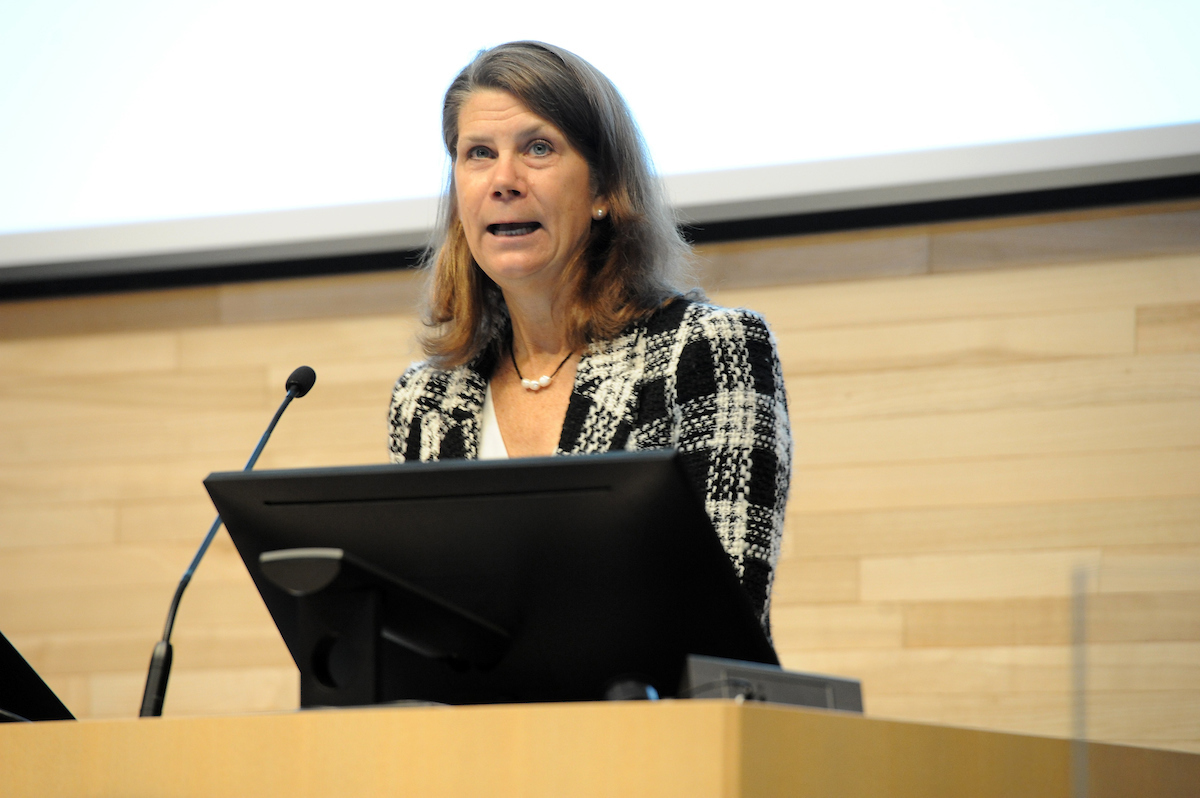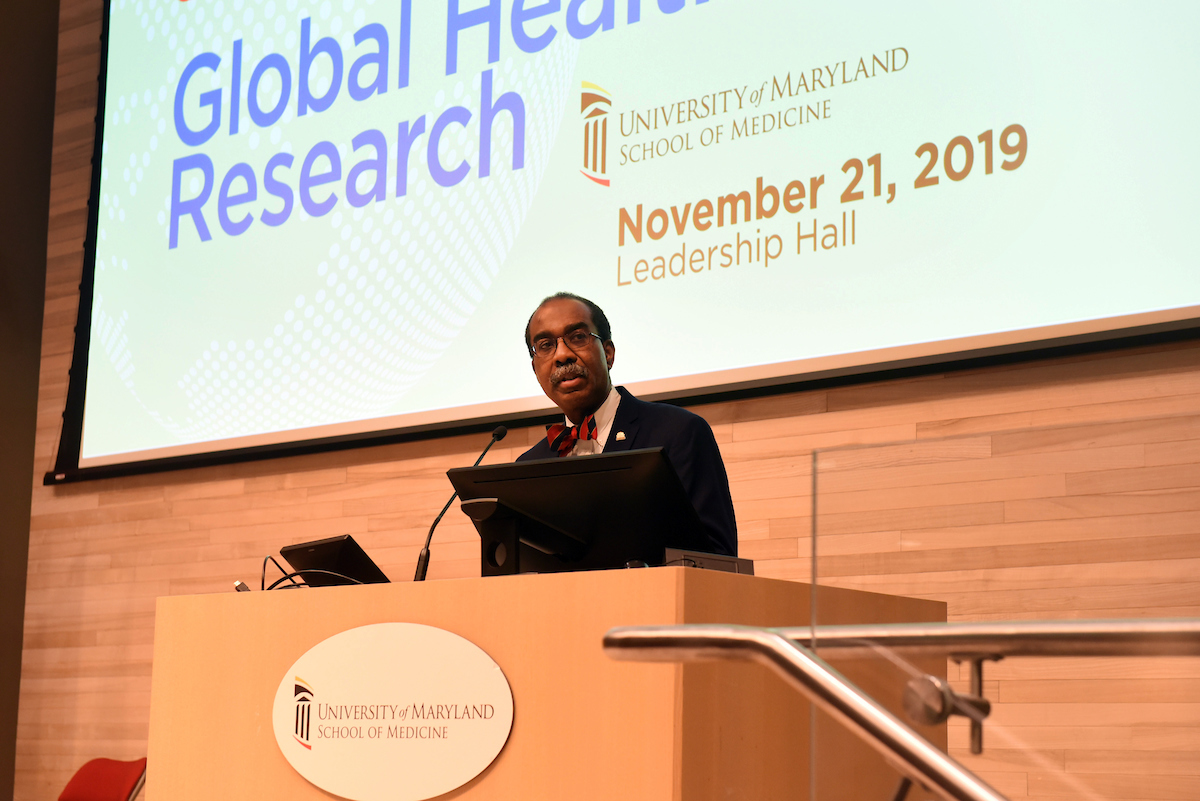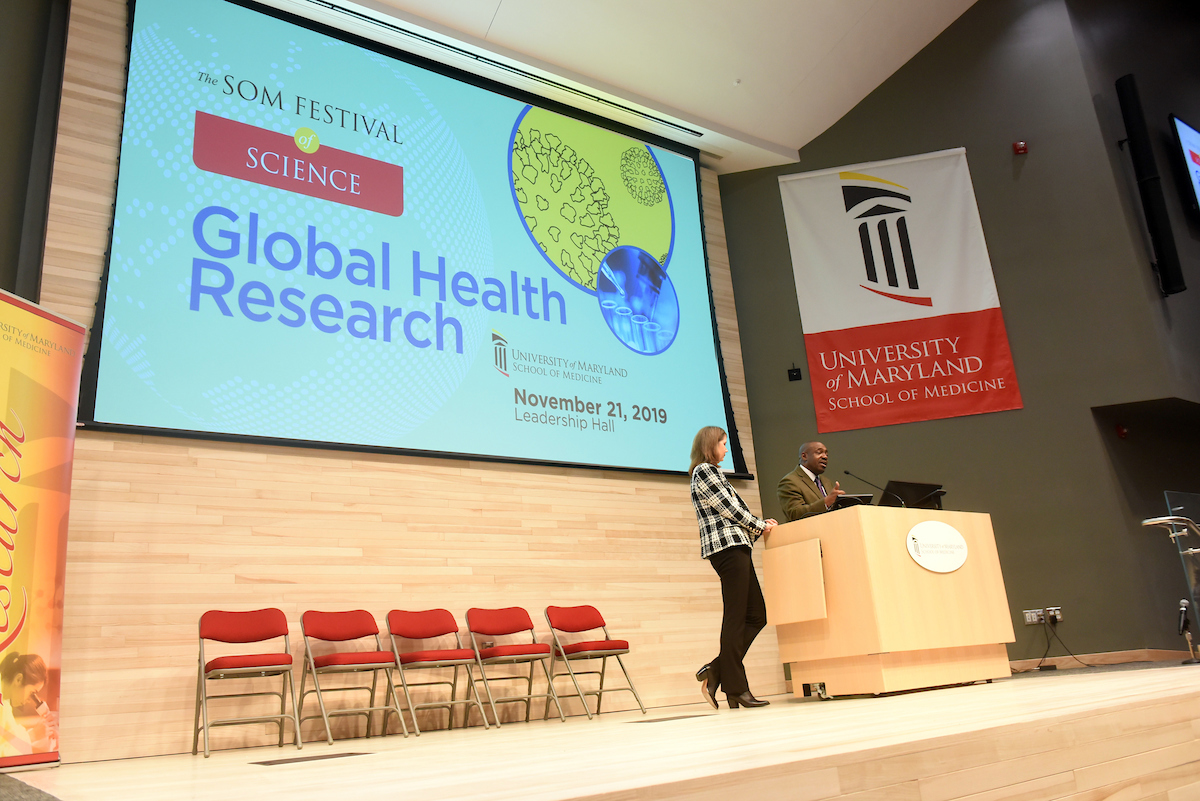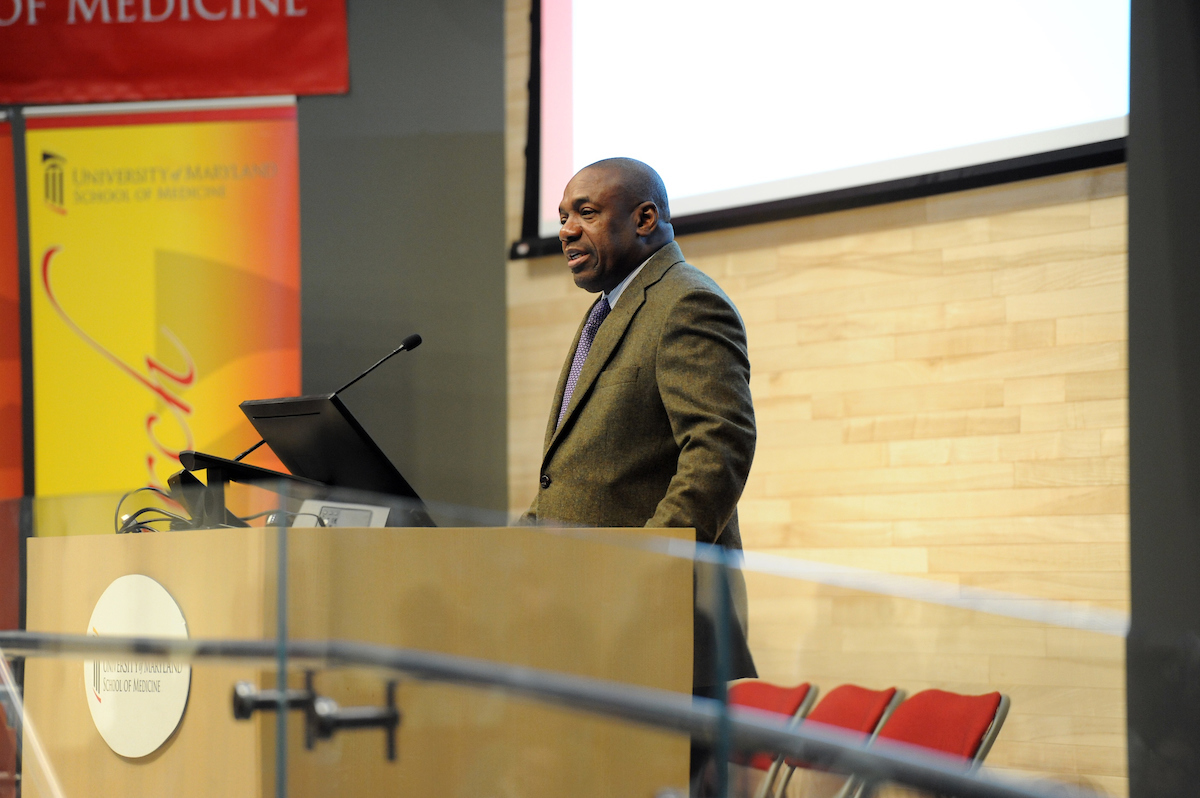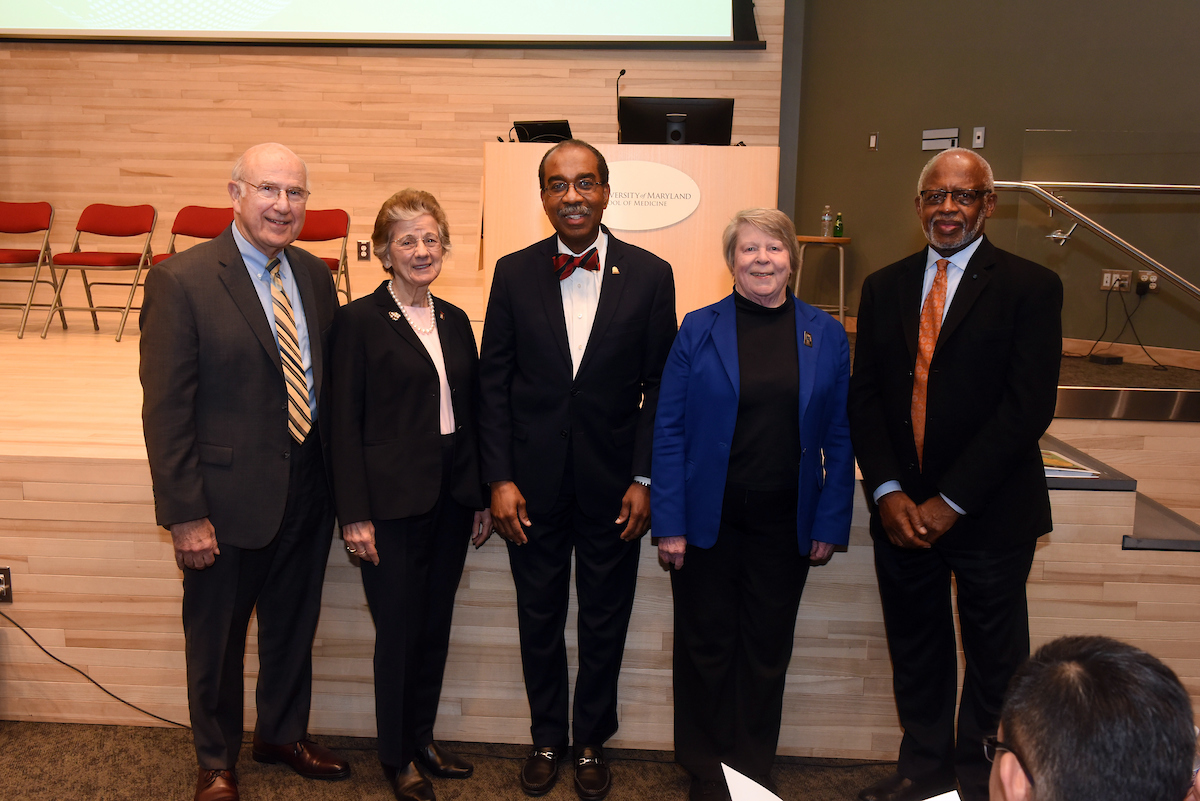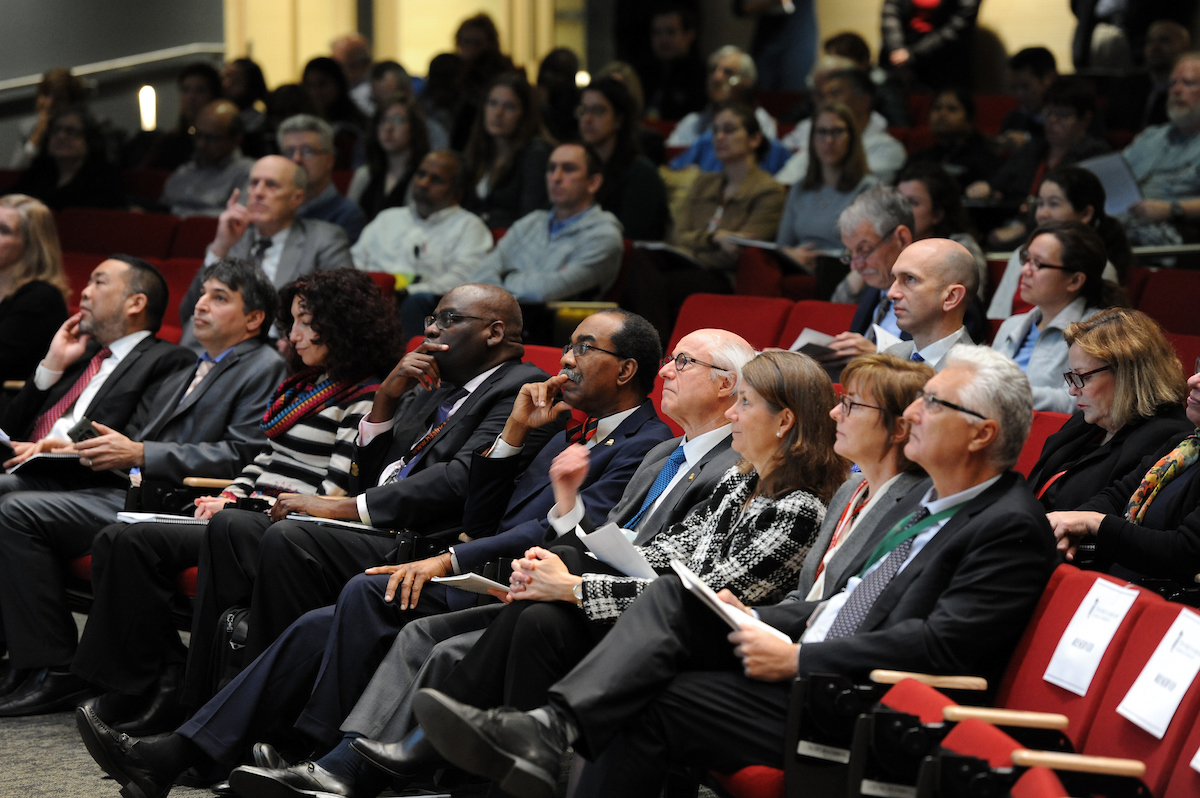November 22, 2019
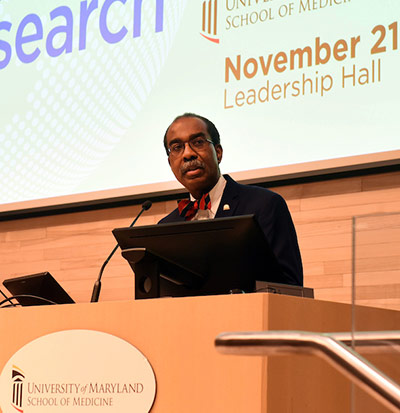
“This year, I’m delighted that we will showcase the incredible work that our faculty conduct, which not only improves – but saves the lives of millions of patients worldwide. As we focus today’s presentations on key projects in our Global Health Research portfolio, we do so while remembering our connectivity to our “neighbors,” whether they live around the corner or half-way around the world.”
With these words, UMSOM Dean E. Albert Reece, MD, PhD, MBA, who is also the Executive Vice President for Medical Affairs, University of Maryland, and the John Z. and Akiko K. Bowers Distinguished Professor, kicked off the seventh annual Festival of Science on November 21, 2019. The daylong celebration of innovative research by UMSOM scientists, held in the school’s Leadership Hall, featured a series of nine faculty presentations focusing on the theme of “Global Health Research.”
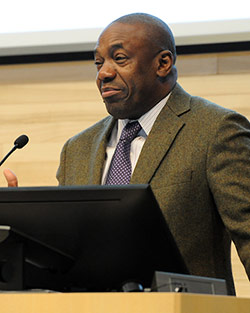 The daylong Festival began with a stirring keynote presentation by Samba Sow, MD, MSc, director general of the internationally recognized Center for Vaccine Development-Mali (CVD-Mali), a collaboration with the University of Maryland School of Medicine that was launched in 2001, and which today resides within the Ministry of Health of Mali. Dr. Sow also is an adjunct professor of medicine at the UMSOM. Speaking to the need to address disease on a worldwide scale, he said, “Pathogens know no borders. Now is the time to come together to form a global team. CVD and CVD-Mali have a vision to create a research partnership that could in real time provide rigorous evidence to drive the improvement of health outcomes through policy change.”
The daylong Festival began with a stirring keynote presentation by Samba Sow, MD, MSc, director general of the internationally recognized Center for Vaccine Development-Mali (CVD-Mali), a collaboration with the University of Maryland School of Medicine that was launched in 2001, and which today resides within the Ministry of Health of Mali. Dr. Sow also is an adjunct professor of medicine at the UMSOM. Speaking to the need to address disease on a worldwide scale, he said, “Pathogens know no borders. Now is the time to come together to form a global team. CVD and CVD-Mali have a vision to create a research partnership that could in real time provide rigorous evidence to drive the improvement of health outcomes through policy change.”
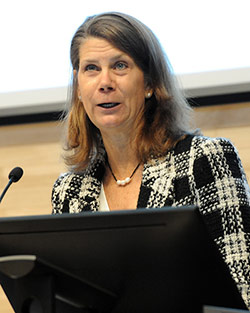 The capacity audience then heard from Kathleen Neuzil, MD, MPH, Myron M. Levine Professor in Vaccinology and Director of UMSOM’s Center for Vaccine Development & Global Health. During her presentation, she underscored the UMSOM’s long history of working globally to prevent disease and save lives within the world’s most vulnerable populations through the global health research activities of the Center for Vaccine Development and Global Health (CVD) and the Institute for Human Virology (IHV). “The success of these programs is based on our experience, expertise, and extensive collaboration that reaches far beyond our campus in Baltimore,” she said, pointing to the decades-long efforts of the CVD in groundbreaking research and development of vaccines, complemented by extensive field work with international partners at long-standing field sites in Mali, Malawi, and Chile, as well as collaborations with researchers throughout Africa and Asia. Concurrently, IHV combines the disciplines of basic science, epidemiology, and clinical research in speeding the discovery of diagnostics and therapeutics for a wide variety of chronic and deadly viral and immune disorders — most notably HIV, the cause of AIDS – in Botswana, Kenya, Malawi, Mozambique, Nigeria, Rwanda, Tanzania, and Zambia.
The capacity audience then heard from Kathleen Neuzil, MD, MPH, Myron M. Levine Professor in Vaccinology and Director of UMSOM’s Center for Vaccine Development & Global Health. During her presentation, she underscored the UMSOM’s long history of working globally to prevent disease and save lives within the world’s most vulnerable populations through the global health research activities of the Center for Vaccine Development and Global Health (CVD) and the Institute for Human Virology (IHV). “The success of these programs is based on our experience, expertise, and extensive collaboration that reaches far beyond our campus in Baltimore,” she said, pointing to the decades-long efforts of the CVD in groundbreaking research and development of vaccines, complemented by extensive field work with international partners at long-standing field sites in Mali, Malawi, and Chile, as well as collaborations with researchers throughout Africa and Asia. Concurrently, IHV combines the disciplines of basic science, epidemiology, and clinical research in speeding the discovery of diagnostics and therapeutics for a wide variety of chronic and deadly viral and immune disorders — most notably HIV, the cause of AIDS – in Botswana, Kenya, Malawi, Mozambique, Nigeria, Rwanda, Tanzania, and Zambia.
Dr. Neuzil emphasized that to gain ground in combatting stubborn diseases like typhoid fever and malaria, a coordinated effort by government and scientific research must be maintained. “Political will and science must come together to deliver these vaccines successfully,” she said.
Festival of Science 2019 Video:
Also in attendance was UMSOM’s external Scientific Advisory Council, composed of four internationally distinguished and preeminent research-scientists, who are also members of the National Academy of Sciences, Engineering, or Medicine. These Council members include:
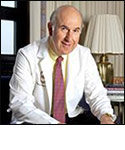
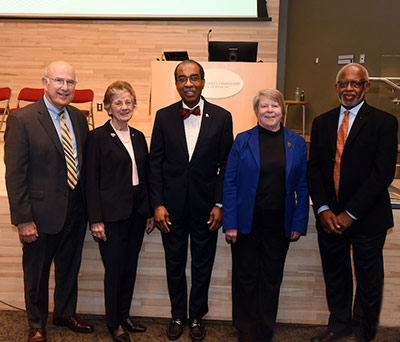 Gilbert Omenn, MD , PhD, Chair
Gilbert Omenn, MD , PhD, Chair
Professor, Computational Medicine & Bioinformatics;
Human Genetics; Molecular Medicine & Genetics;
Public Health, School of Public Health; and
Harold T. Shapiro Distinguished University Professor,
University of Michigan
Member, National Academy of Medicine,
National Academy of Sciences
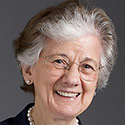 Rita Colwell, PhD
Rita Colwell, PhD
Distinguished Professor, University of Maryland
College Park; Adjunct Professor, Johns Hopkins
University Former Director, National Science Foundation
2006 National Medal of Science
Member, National Academy of Sciences

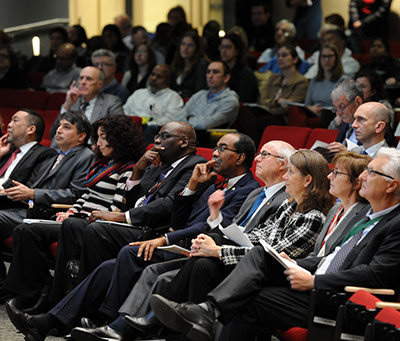 Diane E. Griffin, MD, PhD
Diane E. Griffin, MD, PhD
Professor & Chair, W. Harry Feinstone Department
of Molecular Microbiology & Immunology,
Johns Hopkins Bloomberg School of Public Health
Founding Director, Johns Hopkins
Malaria Research Institute
Member, National Academy of Medicine
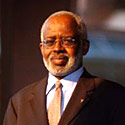 George C. Hill, PhD
George C. Hill, PhD
Past Levi Watkins, Jr. M.D.
Professor for Diversity in Medical Education;
Distinguished Professor Emeritus of Pathology,
Microbiology & Immunology and
of Medical Education & Administration;
Former Vice Chancellor for Equity,
Diversity and Inclusion, Vanderbilt University
Past President, National Foundation for Infectious Diseases
Member, National Academy of Medicine
Other Festival presentation sessions included:
Session I: Global Health Research in HIV and Associated Co-morbidities
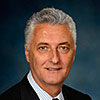 Moderator: Zeljko Vujaskovic, MD, PhD,
Moderator: Zeljko Vujaskovic, MD, PhD,
Professor of Radiation Oncology; Director,
Division of Translational Radiation Sciences
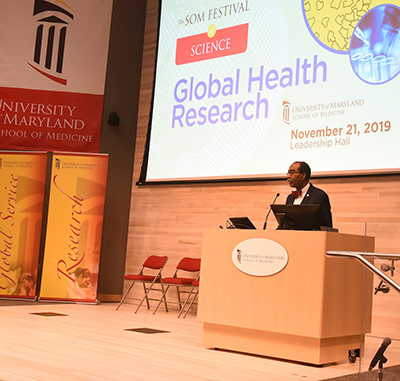 “Measuring the HIV Epidemic and Research to Achieve Epidemic Control”
“Measuring the HIV Epidemic and Research to Achieve Epidemic Control”
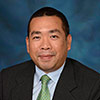 Man E. Charurat, PhD, MHS,
Man E. Charurat, PhD, MHS,
Professor of Medicine; Director,
Division of Epidemiology and Prevention,
Institute of Human Virology
“Developing a HIV Vaccine, and its Role in Global HIV Control”
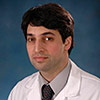 Mohammad Sajadi, MD,
Mohammad Sajadi, MD,
Associate Professor of Medicine,
Division of Clinical Care and Research,
Institute of Human Virology
“Impact of Prenatal Exposure to Pathogens of Global Health Interest on Infant Immunity”
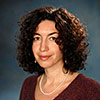 Cristiana Cairo, PhD,
Cristiana Cairo, PhD,
Assistant Professor of Medicine,
Division of Basic Science,
Institute of Human Virology
“Research and Implementation for Global Cervical Cancer Eradication”
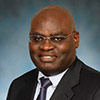 Clement A. Adebamowo, BM, ChB, ScD, FWACS, FACS,
Clement A. Adebamowo, BM, ChB, ScD, FWACS, FACS,
Professor of Epidemiology & Public Health;
Director for Global Health Cancer Research;
Member, Institute of Human Virology;
Associate Director (Population Science Program),
Marlene and Stewart Greenebaum Comprehensive Cancer Center
Session II: Global Health Equity:
Probing new research to accelerate health improvements
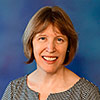
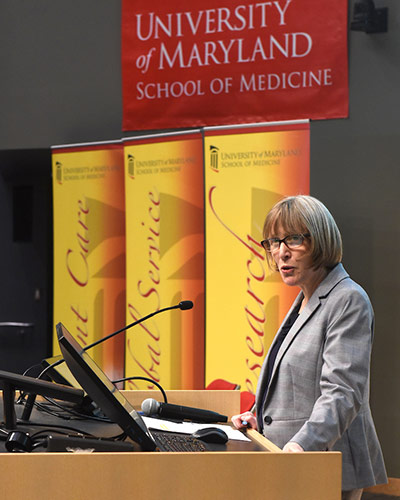 Moderator: Mary-Claire Roghmann, MD, MS,
Moderator: Mary-Claire Roghmann, MD, MS,
Professor of Epidemiology & Public Health;
Associate Dean for Trans-Disciplinary Research;
Associate Dean for Physician-Scientist Training
“Typhoid Control Efforts in Samoa”
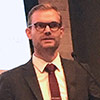 Michael Sikorski, MD, PhD Candidate,
Michael Sikorski, MD, PhD Candidate,
Center for Vaccine Development
and Global Health (CVD)
“Reducing Malaria Mortality in Children”
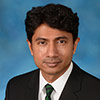 Mark Travassos, MD, MSc,
Mark Travassos, MD, MSc,
Assistant Professor of Pediatrics;
Co-Director, Immunoepidemiology and Pathogenesis
Unit of the Malaria Research Program,
Center for Vaccine Development and Global Health (CVD)
Session III: Addressing Global Health Research Challenges
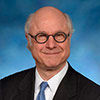 Moderator: Curt Civin, MD,
Moderator: Curt Civin, MD,
Professor of Pediatrics;
Associate Dean for Research;
Director, Center for Stem Cell Biology & Regenerative Medicine
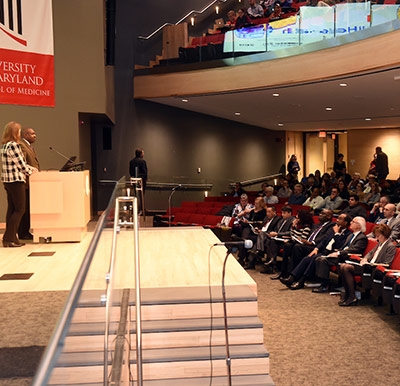 “Uncovering Disease Burden”
“Uncovering Disease Burden”
 Karen Kotloff, MD,
Karen Kotloff, MD,
Professor of Pediatrics;
Division Head, Pediatrics -
Infectious Diseases and Tropical Medicine
“Developing Vaccines for Public Health Need:
The Example of Shigella-ETEC “
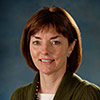 Eileen Barry, PhD,
Eileen Barry, PhD,
Professor of Medicine;
Director of Education for the Center of
Vaccine Development & Global Health
“Innovative Clinical Testing of Vaccines”
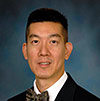 Wilbur Chen, MD, MS,
Wilbur Chen, MD, MS,
Associate Professor of Medicine;
Chief, Adult Clinical Studies, Center for Vaccine Development and Global Health (CVD);
Director, University of Maryland, Baltimore Travel Medicine Practice
UMSOM’s Festival of Science is the cornerstone of the School’s special research initiative, Accel-Med, which embodies the research component of the Shared Vision 20/20 and aims to significantly increase the pace and scope of innovation and discovery, with the ultimate goal of improving human health and wellbeing.
About the University of Maryland School of Medicine
Now in its third century, the University of Maryland School of Medicine was chartered in 1807 as the first public medical school in the United States. It continues today as one of the fastest growing, top-tier biomedical research enterprises in the world -- with 43 academic departments, centers, institutes, and programs; and a faculty of more than 3,000 physicians, scientists, and allied health professionals, including members of the National Academy of Medicine and the National Academy of Sciences, and a distinguished recipient of the Albert E. Lasker Award in Medical Research. With an operating budget of more than $1 billion, the School of Medicine works closely in partnership with the University of Maryland Medical Center and Medical System to provide research-intensive, academic and clinically based care for more than 1.2 million patients each year. The School has over 2,500 students, residents, and fellows, and more than $540 million in extramural funding, with most of its academic departments highly ranked among all medical schools in the nation in research funding. As one of the seven professional schools that make up the University of Maryland, Baltimore campus, the School of Medicine has a total workforce of nearly 7,000 individuals. The combined School and Medical System (“University of Maryland Medicine”) has an annual budget of nearly $6 billion and an economic impact more than $15 billion on the state and local community. The School of Medicine faculty, which ranks as the 8th highest among public medical schools in research productivity, is an innovator in translational medicine, with 600 active patents and 24 start-up companies. The School works locally, nationally, and globally, with research and treatment facilities in 36 countries around the world. Visit medschool.umaryland.edu
Contact
Office of Public Affairs
655 West Baltimore Street
Bressler Research Building 14-002
Baltimore, Maryland 21201-1559
Contact Media Relations
(410) 706-5260

